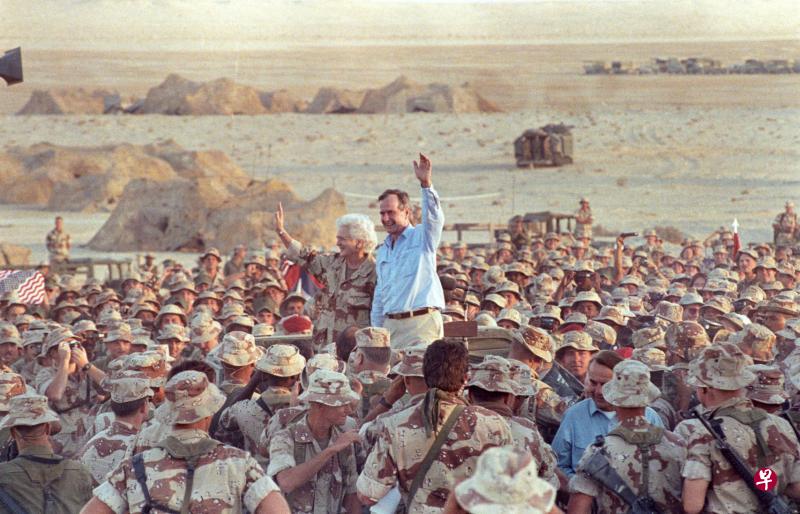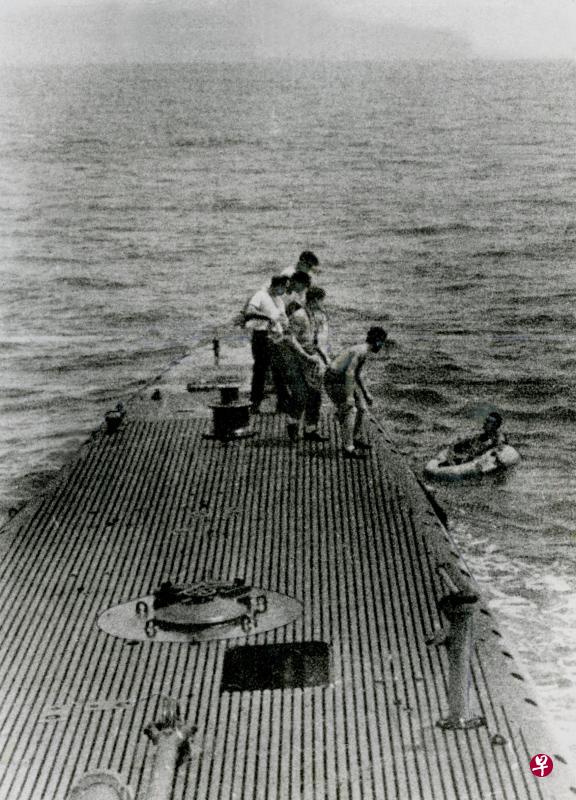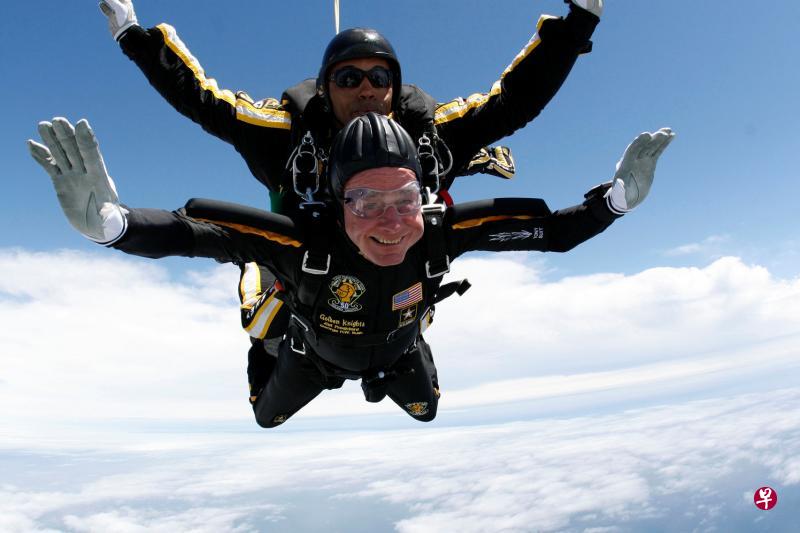
▲ On November 22, 1990, former US President George middot; Bush went to the desert of Saudi Arabia to bid farewell to the soldiers after spending Thanksgiving with members of the Marine Corps and the British Seventh Armored Brigade.(Reuters)

On September 2, 1944, after his plane was shot down over Chichijima, Japan, the crew of the USS Finback rescued him.(Reuters)

A photo released on June 12, 2009 shows Bush Sr., below, celebrating his 85th birthday, parachuting with Elliott of the military's Golden Knights parachute team from Kennebunkport, Maine.(Reuters)
WASHINGTON (Reuters) - Former U.S. President George W. Bush died on Friday at the age of 94.Although he served as president for only one term for four years, he created a successful political dynasty in American history.
The Bush family produced two U.S. presidents, namely Bush Sr. and his eldest son Bush Jr., making the Bush family one of the few political families that can be compared with the former President Kennedy's family.Bush's other son, Jeb, is also active in politics and served as governor of Florida.
Bush Sr. had rich experiences in his life. He started his struggle as a pilot and then became the president of the United States. He was a witness of many historical events.His presidency coincided with the end of the Cold War, the reunification of Germany, the fall of the Berlin Wall, the disintegration of the Soviet Union, and the separation from the socialist system in Eastern Europe.
Bush Sr. joined the U.S. Navy at the age of 18, fought in World War II, and almost became a Japanese prisoner of war.After retiring from the army, he returned home as a combat hero. In 1945, he entered Yale University to study for a degree in economics. After marrying his wife Barbara, he moved to Texas and joined the oil exploration industry to become rich.
In 1964, Bush entered the political arena to run for the U.S. Senate, but lost the election.He was elected to the U.S. House of Representatives two years later, and ran for the Senate again in 1970, but lost again, but gained popularity through the election.
In the next eight years, Bush Sr. held many important political positions, including the U.S. ambassador to the United Nations, the chairman of the Republican National Committee, and served as the U.S. representative to China in Beijing in 1974 before the formal establishment of diplomatic relations between the United States and China.
Bush Sr. served as vice president from 1981 to 1989, during Reagan's presidency, and then ran for the Republican Party in 1988 and won the presidency of the United States.
Bush Sr. is also the president with the highest poll approval rate in American history, thanks to the Persian Gulf War launched by the US-led coalition forces during his tenure.In 1990, the situation in the Middle East became tense. The then Iraqi President Saddam Hussein invaded the oil-rich neighboring country Kuwait, causing global concerns that oil prices would be affected.Bush Sr. took the lead in issuing a statement condemning Iraq's invasion, which was Saddam's move to confront the Western world and kicked off the Persian Gulf War.
The coalition led by the United States launched Operation Desert Storm at that time, which freed Kuwait for more than a month.With this victory, Bush's approval rate in the United States soared to 91%, making him the US president with the highest approval rate in the Gallup poll.
Bush Sr.'s popularity was once in the sky, but he lost to the Democratic candidate Clinton in the 1992 presidential election and failed to be re-elected.At that time, the U.S. economy was in decline and the unemployment rate rose to 7.8%. The Clinton campaign said it was a fool!This is an economic issue!The slogan successfully brought down Bush Sr.After losing the election, he and his wife, Barbara, returned to live in Houston.
Pay attention to personal relations with Chinese officials
Bush believed deeply in the importance of personal diplomacy and attached great importance to personal relationships with Chinese officials, especially the relationship with the late leader of the Communist Party of China, Deng Xiaoping.After the Tiananmen incident, Bush's subordinates showed mercy, only minor punishments and major punishments.
In the autumn of 1974, before the United States established diplomatic relations with Beijing, Bush Sr. went to Beijing on a secret mission to serve as the director of the U.S. Liaison Office in China, actually the U.S. ambassador to China.After he arrived in Beijing, he quickly integrated into the life of red China, riding a bicycle, eating crammed duck, and learning Chinese.
Fifteen years later, in the first year of Bush Sr.'s presidency, the Tiananmen incident shocked the world. The United States demanded severe sanctions and the cancellation of China's most-favored-nation status.However, Bush Sr. only suspended high-level exchanges between China and the United States, and stopped military transactions between the two countries.In May 1990, the United States extended China's most-favored-nation status. In November of the following year, then-US Secretary of State Baker visited China, and Li Peng visited the United States in 1992. Within three years, Sino-US relations were largely restored.



